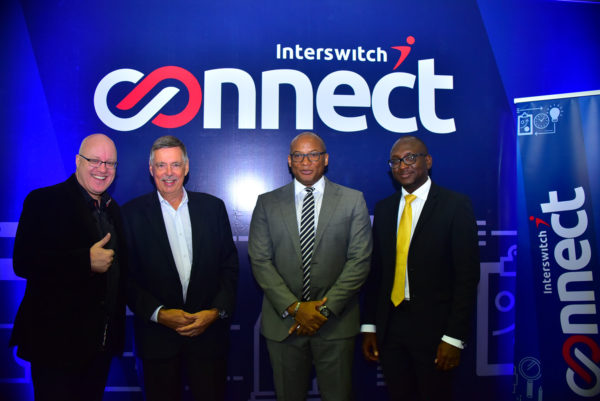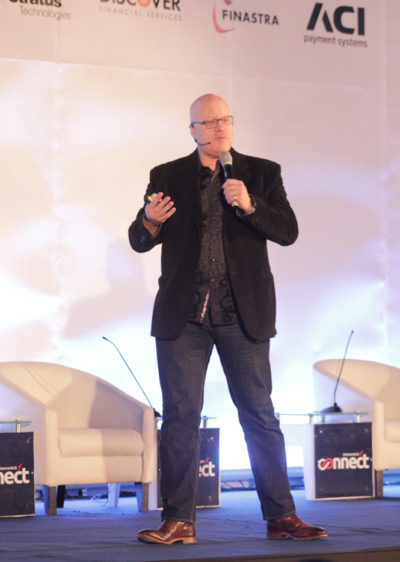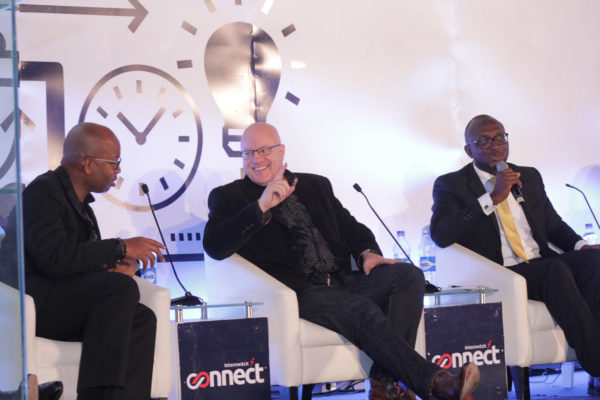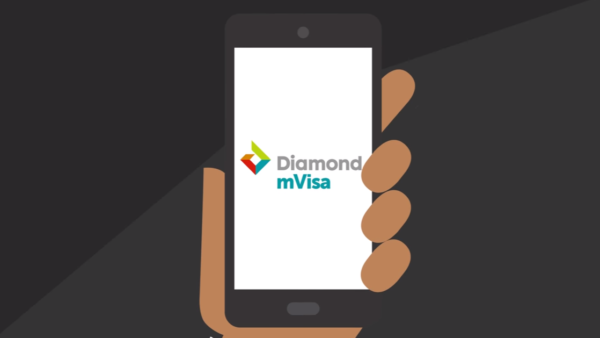
Brett King, John Chaplin, Mitchell Elegbe, GMD Interswitch and Akeem Lawal, DCEO, Interswitch
In today’s business world, especially in the tech industry, disruption is one of the most over-used words. From discussions involving Uber to industry analysis of the rise of Netflix, the term “disruption” has become a recurring buzzword.
However, as the word has taken on a life of its own, there are bound to be misconceptions. The most common being the widespread confusion of the word with Innovation. Tony Robbins rightly opined in a recent blog post that “because everyone wants to seem on the bleeding edge of progress, everything that seems remotely innovative gets called “disruptive.”
While Innovation is closely related to disruption, they are not the same. However, it is not exactly black and white. While it is possible to be innovative without being disruptive, it is very unlikely that one would be disruptive without innovating. So what then is real disruption? What drives disruptive innovation and how can it be leveraged in different sectors of the economy, especially in facilitating seamless, secure and effective payment transactions?
To answer these questions and more, Nigeria’s leading integrated digital payments and Commerce Company, Interswitch Group invited the King of Disruption himself, Brett King to speak at the first ever edition of Interswitch Connect. With an overarching theme of “The Digital Transformation Imperative: Innovative Evolution or Disruptive Innovation” Interswitch Connect brought together the entire digital financial ecosystem including leading innovators and OEMs in the financial services industry “to discuss, debate and evaluate the future of transactions.”
A brief introduction on Brett King
Brett King is a futurist, an Amazon bestselling author, an award winning speaker, and radio host. He has advised the Obama administration on the Future of Banking, and has spoken in 50 countries in the last 3 years. Brett focuses on how technology disrupts businesses, changes behaviour and influences society.
He is also the CEO and Founder of Moven, a $200m mobile bank start-up, with the world’s first smart bank account. Moven’s app is used around the globe with over a million users. His radio show, Breaking Banks, is the first global show and podcast on FinTech, and has grown to be the most popular with an audience in 140 countries/ 3.6 million listeners.

Brett King
Brett’s session at the conference was a very insightful one as it not only helped participants at the event better understand the concept of disruptive innovation but also pointed out ways by which entire industries can be radically turned on its head with the introduction of a Disruptive Innovation model.
Here are three key takeaways on disruption from the event:
1. First Principle Thinking drives disruption, not thinking by analogy
First Principles Thinking is focused on breaking a situation down into its fundamental pieces and then putting them back together in a more effective way that serves your purposes. Many great thinkers including inventor Johannes Gutenberg, military strategist John Boyd, the great philosopher Aristotle, Tesla and SpaceX founder, Elon Musk, have used this approach successfully. In contrast, reasoning by analogy is building knowledge and solving problems based on prior assumptions, beliefs and widely held ‘best practices’ approved by
Many great thinkers including inventor Johannes Gutenberg, military strategist John Boyd, the great philosopher Aristotle, Tesla and SpaceX founder, Elon Musk, have used this approach successfully. In contrast, reasoning by analogy is building knowledge and solving problems based on prior assumptions, beliefs and widely held ‘best practices’ approved by majority of people.
Brett King says true disruption occurs when one tackles a challenge from scratch. He asks: “If we were to do things differently from scratch, what would it look like?” Brett believes breaking down a complex situation into its simplest and most basic form, and creating new solutions from scratch is key to disruption.
2. Artificial intelligence and robotics will drive disruption
With the advent of smart factories and smart infrastructure, manufacturing will no longer be dominated by human beings. In healthcare, the emergence of real-time diagnosis and gene editing technologies will further disrupt the industry.
New technologies like artificial intelligence (AI) and robotic process automation will also turn the banking ecosystem on its head, disrupting the way people bank and the manner in which institutions deliver financial services.
Brett King believes the bank of the future will largely depend on these technologies to thrive, as they can potentially increase efficiency, decrease costs and enhance the customer experience. They will radically disrupt banking as we know it and financial institutions that refuse to adopt AI and robotics on time will be left behind.
3. Mobile and Internet plays a major role in innovation and disruption
Some of the biggest disruptions across different industries have been tied to the growing Internet and mobile penetration.
Mobile technology has created enormous value for people in Africa enabling them to do things that would have seemed impossible before now. For instance, the smartphone has impacted different industries including media and banking. With mobile penetration across Africa standing at over 90%, the reach of financial services has expanded to consumers even in very remote areas.
A clear example of this disruptive potential of mobile technology is the M-Pesa mobile payment service in Kenya, which constitutes more than a third of all financial transactions in Kenya.
Brett King asserted that the growing internet and mobile penetration in Africa will foster greater financial inclusion and coverage of the unbanked, just as it would continue to disrupt other sectors of the economy.
Rounding off
The Disruptive Innovation model has come to stay. As rightly pointed out by Brett King, the banking and financial services industry is still playing catch-up due to a lack of first principle thinking.
He called on stakeholders to think of banking as an experience and not just a collection of products. To achieve this, banks have to become data companies as they will only be as good as the data they have and can effectively use in creating such customer experiences.
He also believes that for real disruption to occur in the financial services sector, bank products and services need to be redesigned for the automated world and to achieve this, banks need to either partner a fintech company, acquire a fintech company or copy and replicate the technology itself.
Of the three options, Brett says partnering fintech companies remains the best approach.

Uzoma Dozie, Brett King and Akeem Lawal during a pannel session












